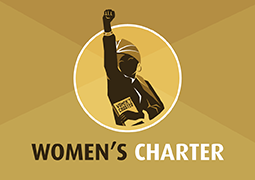
Venue: Hybrid Session Time: 10H00 Date: 27 May 2022
Speaker of the Limpopo Provincial Legislature
Members of the Executive Council
Members of the Legislature
Members of Parliament
District and Local Government Mayors
Distinguished Guests
Ladies and Gentlemen
It is an honour and privilege to welcome you to the Women’s Charter for Accelerated Development, Report Back Session. We hope we are going to have a fruitful and honest discussion about the status of women in the Limpopo province. We are not here to judge, criticize or to blame, but to find lasting solutions to gender inequality.
In South Africa, we have made a lot of progress as a country to achieve gender equality. South Africa’s 1996 Constitution is one of the most progressive in the World and asserts the principle of gender equality, as an important component in our transformation trajectory.
However, for the past decades of the post-apartheid we have failed to use the Constitution and other instruments to effect change in gender relations. The Socioeconomic challenges of inequality have been persistent in the two and half decades of the post-apartheid era. Women remain undervalued, they work more, earn less, have fewer choices and experience multiple forms of violence at home and in public.
Despite the provisions in the Constitution, our Country has among the highest levels of intimate partner violence in the world. Violence against Women is now a pandemic “making South Africa one of the most unsafe places in the world to be a women or a girl child.”
Covid-19 could reverse the limited progress that has been made on gender equality and women's rights as a pandemic is deepening existing inequalities, exposing vulnerabilities in social, political and economic systems, which are in turn amplifying the impact of the pandemic.
Honourable Members, Gender inequality and patriarchal norms are the root cause of violence against women and children. Substance abuse is another leading factor in the scourge of gender-based violence and femicide. South Africa also has among the highest levels of alcohol consumption across the globe.
Another contributing factor is the phenomenon of absent fathers, leaving children with a sense of rejection and woundedness.
Honourable Members, to find lasting solutions and in seeking to strengthen efforts to enable the institutionalisation of gender sensitive –good governance norms and practices, Parliament has successfully completed its nation –wide 25-year review of the 1994 Women’s Charter for effective Equality.
The review process was undertaken in collaboration with strategic partners and stakeholders across the three spheres of government, Chapter Nine institutions, academics, civil society organisations, women formations, as well as ordinary South African women across the country.
From 2019 to 2021, we embarked on a review process to review the entire women’s rights regime, in order to assess the efficacy of existing systematic and institutional mechanisms across the three spheres of government, in order to advance the realisation of gender equality.
The review engagements have explicitly exposed the glaring gap between policy and practice and the disjuncture between the public endorsement of gender equality and actual institutional practice.
The review process has also exposed how institutions charged with the responsibility to advance gender mainstreaming are no longer appropriately designed, capacitated and managed. Most of our state institutions suffer from the displacement of technical competencies in the core business and the management of its operations.
We seem to slowly be moving away from the content of our transformational trajectory, which seeks to liberate the largest and most oppressed group, the African people in general and women in particular.
Honourable Members, the basic framework of our democratic achievement in South Africa is irreversible, but it can be derailed leaving us with a shell of political rights without real social content. Hence, it was imperative to review the 1994 Women’s Charter. To use it as a background to commence the review process.
The 1994 Women’s Charter provided us with both the scope and context to assess the efficacy of key development policies, legislative instruments and frameworks, planning, programming and institutional arrangements currently in place.
The Women’s Charter for Accelerated Development, therefore represent the third strata of gender equality manuscripts in South African history. The Review process has emboldened women to assess, within the context of a democratic and developmental state, whether the state has efficiently given expression to the ideas and provision encapsulated in the agenda that was set by both preceding charters.
The Women’s Charter for Accelerated Development serves as the Demand Document for the Women of South Africa, articulating matters for urgent prioritization by the three Arms of the state, the three spheres of government, including all Sectors of Society. The revised charter will also serve as a road map for effective policy re-design and implementation going forward.
Conclusion
Honourable Speaker, Members of the Provincial Executive and Mayors, Parliament is embarking on a sustained and targeted Oversight and Accountability campaign, to oversee the effective implementation of the 2021 Women’s Charter for Accelerated Development, through quarterly report back sessions.
In keeping with the pledge we made during the review process of following-up-on our commitments, Parliament is embarking on a process of tracking progress made in implementing the undertakings made in the Limpopo High-Level Session, where the Provincial Executive proceeded to present, a comprehensive gender mainstreaming programme of action for the province.
Honourable Members, Debates on the need for a new growth path and what this might entail have been ongoing for some time. There is now increasing consensus about Africa’s growth path, but probably less agreement about how far that shift should go and what the substance of a new growth path should be.
As women gathered here today, we are clear. We want the new growth path to be gender-biased, to be intentional and to incorporate a gender perspective in the planning and budgeting framework and concrete investment in addressing gender gaps.

